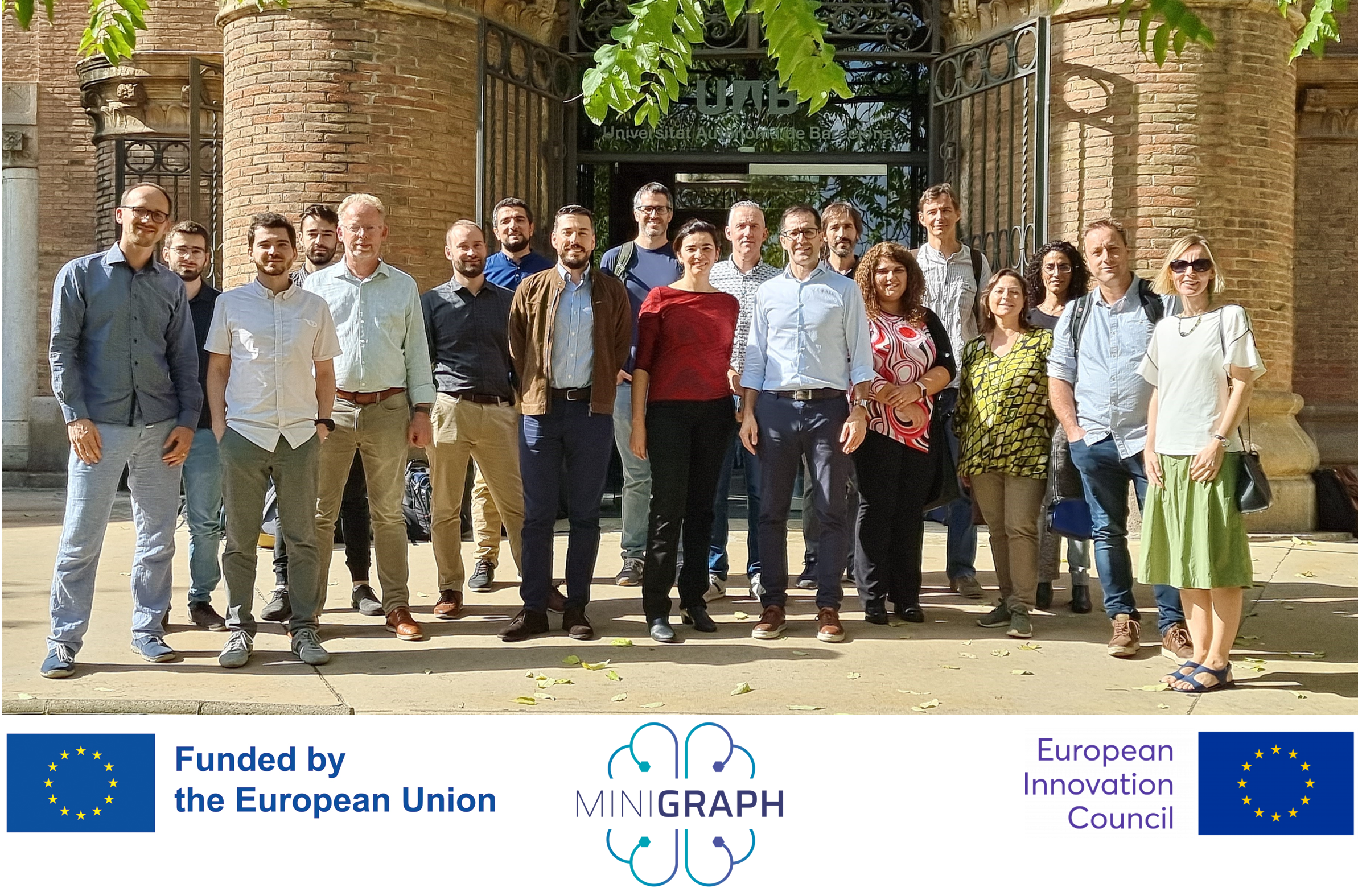Representatives of the European consortium met in Barcelona to discuss the short-term objectives and establish the agenda.

The kick-off meeting of the project MINIGRAPH, coordinated by the ICN2 Advanced Electronic Materials and Devices Group, led by ICREA Prof. Jose A. Garrido, was held on 20-21 October at the Casa de Convalescència in Barcelona. The project has received €4M in funding from the European Commission through the 2021 European Innovation Council (EIC) Pathfinder Challenges call, plus another €1.2M from the Swiss Federal Government (State Secretariat for Education, Research and Innovation).
In addition to ICN2 and INBRAIN Neuroelectronics, both based in Barcelona (Spain), the consortium that will carry out the MINIGRAPH project includes imec (Belgium), the Fraunhofer Institute for Reliability and Microintegration (Germany), ETH Zürich and its spin-off Nanoflex Robotics (Switzerland), and the Leiden University Medical Centre (Netherlands). INBRAIN Neuroelectronics is a technology company founded by researchers from ICN2, ICREA and IMB-CNM-CSIC that develops graphene-based applications for neurological diseases.
Taking advantage of the unique characteristics of graphene, MINIGRAPH aims to develop ground-breaking brain neurotechnology for neuromodulation and a novel minimally invasive implantation procedure, for the treatment of neurological and neuropsychiatric diseases. This technology will enable clinicians and researchers to uncover new disease biomarkers and develop personalised and adaptive therapies depending on patients’ needs.
In the next three years, the MINIGRAPH team will prototype a highly miniaturised and precise implant with an optimal biocompatibility and adaptability to brain tissue, far surpassing the most advanced neurostimulation therapies. A magnetic carrier – a type of magnet that allows users to steer the implant from the outside – will enable a high-precision robotic implantation through a single small incision in the skull.
Hosted by ICN2, the kick-off meeting was attended by representatives from each partner in the MINIGRAPH consortium and allowed them to define the roadmap for the next six months. In particular, this will involve the fabrication of first-generation graphene-based neural interfaces, the design of electronic circuits, and the initial conceptualization of the magnetic carrier for the robotic implantation.
This project has received funding from the European Union’s Horizon Europe research and innovation programme under grant agreement No 101070865. It is also supported by the Swiss State Secretariat for Education, Research and Innovation (SERI) under contract No 22.00163.
Views and opinions expressed are those of the authors only and do not necessarily reflect those of the European Union or the Swiss Federal Government. Neither the EU nor the funding agency can be held responsible for them.

